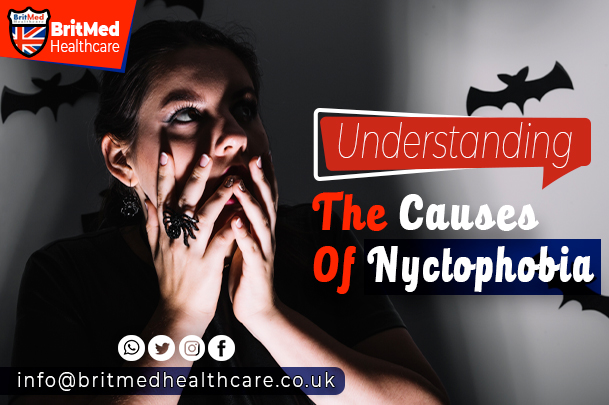The Fright of the Dark: Understanding the Causes of Nyctophobia
Among the more prevalent types of phobias, nyctophobia is an excessive and irrational fear of either darkness or night. Nyctophobia does not have a place among mental health disorders, yet it can cause tremendous distress and anxiety, influencing daily schedules and affecting interpersonal relations. In this paper, we describe the causes of nyctophobia and point out some contributing psychological, environmental, and cultural variables.
Childhood Experiences
The majority of people develop nyctophobia due to childhood experiences. A frightening nightmare or an encounter with a creepy insect in the dark may leave indelible scars, instilling a lifelong phobia of night. Additionally, those children who became separated from their parents or caretakers in the dark develop a sense of vulnerability and insecurity, which will be demonstrated through nyctophobia. Separation anxiety disorder, where there is excessive distress in cases of separation from close ones, may also have some relation to nyctophobia in certain instances.
The Unknown
The unknown can be one of the most potent catalysts for fear and anxiety. In the context of nyctophobia, darkness might certainly be seen as an environment which is un-mastered and beyond control, thus making people helpless and afraid. This can be brought about by the instinct related to avoiding danger, which simply makes such individuals relate the dark to potential threats and harms.
Environmental Factors
More or less, nyctophobia can well be developed as a result of environmental factors. For example, living in an area with high rates of crime or traumatic events happening in the dark, such as being attacked or robbed, may increase an individual’s fear of the night. Environmental stimulations like loud noises or some eerie sounds may produce anxiety and discomfort in individuals prone to nyctophobia.
Cultural Influences
The influence of culture is another influential factor in affecting our approach towards night and darkness, for in many cultures, it has been associated with evil or other supernatural beings that evoke fear of the night. This is an associative case where mythologies and folklores sometimes make the dark represent times where monsters or ghosts roam freely, thus making people feel threatened and actually creating a sense of horror in them.
Conclusion
Nyctophobia can be called a complex kind of phobia, since its influence is impressed on by a wide range of psychological, environmental, and cultural factors. While it is not recognized as any formal disorder in the field of mental health, nyctophobia might be an impairment to one’s quality of life. If we understand what causes nyctophobia, it helps in better appreciating its complexities and hence developing effective strategies to overcome this phobia.
References:
Symptoms and Management of Nyctophobia (Fear of Darkness) (verywellhealth.com)
Nyctophobia (Fear of the Dark): Symptoms & Causes (clevelandclinic.org)
Nyctophobia: What It Means, How It’s Caused, and How It’s Treated (webmd.com)
Websites:
Britmed Healthcare: https://britmedhealthcare.co.uk/
Nightingale Hospital: https://www.nightingalehospital.co.uk/
You can also book on Top Doctors UK Contact us on WhatsApp 08009708017
Top Doctors: https://www.topdoctors.co.uk/doctor/ahmed-el-missiry




